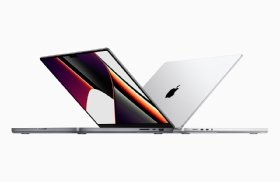
Getty Images
Microsoft gets kudos for bringing OneDrive to Apple M1 Macs
OneDrive will soon run on ARM-based laptops, joining Box, Dropbox and Google storage services. Analysts said the ARM-based laptop market will grow in the coming years.
Microsoft's decision to run OneDrive natively on ARM-based devices, including Apple's latest M1 Macs, has sparked praise from people who use iOS and Windows on ARM for work.
Last week, Microsoft announced a OneDrive sync for ARM available in beta for developers. The company plans to make the technology generally available next year.
"I have been waiting for this all year on my M1 MacBook," said Robert Doyle, a project manager at IBM. "It is important to me because I have moved to a new Apple silicon-based MacBook Pro 14, and [M1] is where … the Apple industry is headed."
Reddit users praised Microsoft for adapting OneDrive to ARM-based processors and reiterated the importance of the file storage software to their work.
"I like the multi-platform approach Microsoft has been taking recently," said one user.
Added another user: "I'm not the biggest fan of Microsoft, but OneDrive is best in class."
Microsoft has been working on supporting Windows apps on ARM-based Qualcomm Snapdragon processors used in laptops like Microsoft's Surface Pro X and HP's Elite Folio, said Gartner analyst Jon Erensen. But support for file storage apps on Snapdragon and M1 has been lacking.
Dropbox, another file storage provider absent from devices running ARM chips, announced soon after the Microsoft announcement that it would provide support for M1 next year. Rival Box already runs its service on Apple's M1 desktops and laptops.

Google offers the Google Drive app on M1-powered iMacs and MacBooks. However, the company doesn't plan to provide the cloud storage app for devices running Windows on ARM "due to relatively low adoption."
In the third quarter of 2021, about 81% of PCs running macOS had an M1 processor, and 19% had an Intel x86 processor, according to IDC. Only 0.15% of Windows PCs ran on ARM; the rest had Intel x86 chips.
Gartner expects one of six PCs to run ARM-based chips by 2025. Apple has replaced Intel chips with M1 in all its MacBooks and two of its four iMac desktops.
ARM devices consume less power and have better battery life than their Intel counterparts. Erensen said he sees interest among PC manufacturers building ultra-portable products.
Maxim Tamarov is a news writer covering mobile and end-user computing. He previously wrote for The Daily News in Jacksonville, N.C., and the Sun Transcript in Winthrop, Mass. He graduated from Northeastern University with a degree in journalism. He can be found on Twitter at @MaximTamarov.








